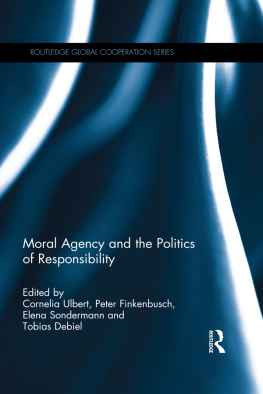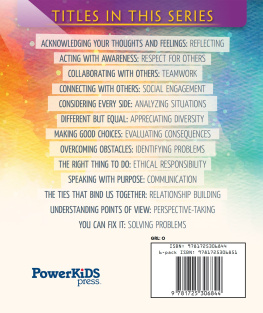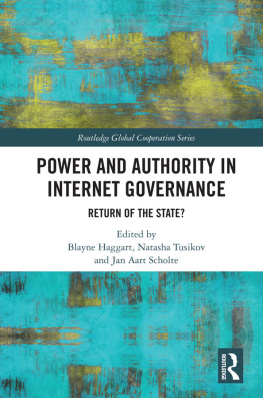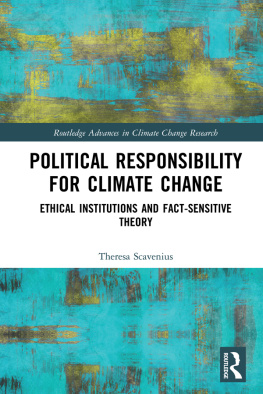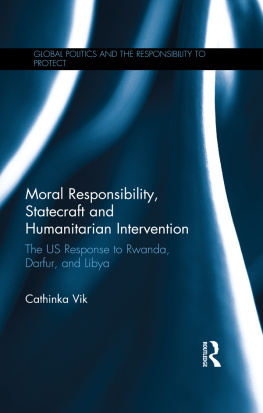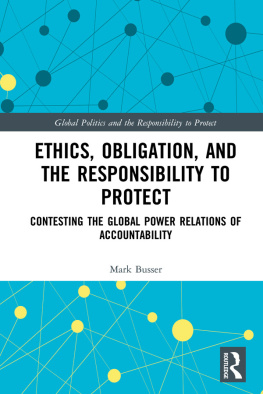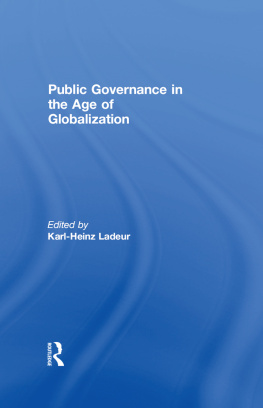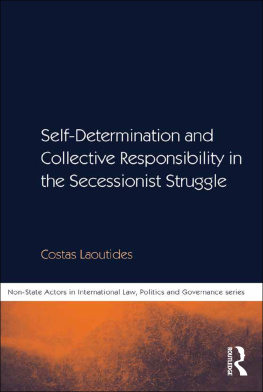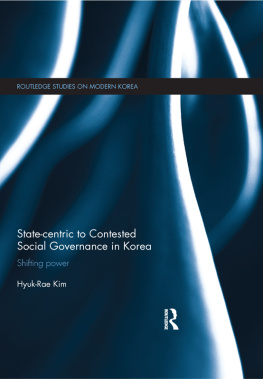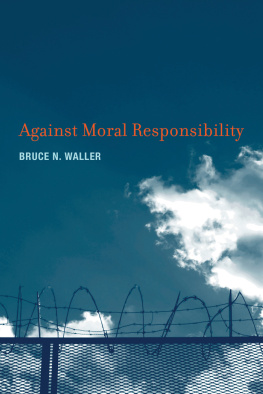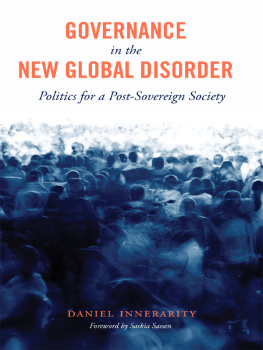Moral Agency and the Politics of Responsibility
At a time when globalisation has sidelined many of the traditional, state-based addressees of legal accountability, assigning responsibility is contested in many transnational fi elds. There, political, economic and social actors struggle to defi ne the collectively binding rules of moral conduct. It is still unclear how blame is allocated in the new, highly differentiated, multi-actor governance arrangements by which todays world is characterised.
Moral Agency and the Politics of Responsibility investigates how actors in complex governance arrangements negotiate, delegate and distribute responsibility. This book asks how moral duties can be defi ned beyond the territorial and legal confi nes of the nation-state, how the moral agency of individuals and collective actors can be enhanced, and how obligations and accountability mechanisms for a post-national world, in which responsibility remains vague, ambiguous and contested, can be established. Using both empirical and theoretical perspectives, the book explores the politics of responsibility that plays out as responsibility relationships emerge, develop, and change.
This book is perfect for scholars of international relations, politics, philosophy and political economy with an interest in the increasingly popular topics of moral agency and responsibility.
Cornelia Ulbert is Executive Director at the Institute for Development and Peace, University of Duisburg-Essen, Germany.
Peter Finkenbusch is a Researcher at the Institute for Development and Peace, University of Duisburg-Essen, Germany.
Elena Sondermann is a Researcher at the Institute for Development and Peace, University of Duisburg-Essen, Germany.
Tobias Debiel is Professor of International Relations and Development Policy at the Institute of Political Science and Director of the Institute for Development and Peace as well as the Kte Hamburger Kolleg/Centre for Global Cooperation Research, University of Duisburg-Essen, Germany.
This wide-ranging, pluri-disciplinary, and insightful collection analyses the complex, frequently contested relations between moral agency, the conditions for its development; the mechanisms for holding agents accountable and responsible; and changing economic and political practices. Its authors develop different theoretical perspectives and explore diverse cases and, together, make important contributions to international relations, political economy, and governance studies.
Bob Jessop, Lancaster University, UK
Through compelling empirical cases and sophisticated theoretical analyses, the contributors to this valuable volume demonstrate that responsibility is something that is necessarily and vigorously contested. By addressing the complex political, social, economic, and technological contexts within which the concepts of moral agency and responsibility are negotiated and renegotiated, they succeed in enhancing our understanding of both.
Toni Erskine, University of New South Wales, Australia
What is it to be responsible in todays global world? Who is (made) responsible, for what, to whom, how, when, and to what purpose? The probing debates in this volume greatly clarify these issues, in particular the high-stakes ethics and politics involved.
Jan Aart Scholte, University of Gothenburg, Sweden
This timely book investigates the politics and contestations surrounding the notion of responsibility which has become a rather prominent topic in world politics (e.g. in the responsibility to protect). The authors approach the subject from a variety of critical perspectives, thereby taking a decidedly agency-centered perspective. A must-read for both academics interested in and practitioners of global governance.
Thomas Risse, Free University Berlin, Germany
This excellent collection offers a compelling range of perspectives on the politics of responsibility the conditions under which responsibility arises; who can exercise it; and the roles it plays in international relations. Highly recommended for anyone interested in the development of contemporary conceptions of moral agency and practices of responsibility.
Kirsten Ainley, LSE, UK
Responsibility is one of the most contested notions in international relations. Unsurprisingly, I disagree with some of this fi rst-rate team of contributors. But their provocative and thoughtful refl ections must be read and pondered.
Thomas G. Weiss, City University of New York, USA
Routledge Global Cooperation Series
This series develops innovative approaches to understanding, explaining and answering one of the most pressing questions of our time how can cooperation in a culturally diverse world of nine billion people succeed?
We are rapidly approaching our planets limits, with trends such as advancing climate change and the destruction of biological diversity jeopardising our natural life support systems. Accelerated globalisation processes lead to an ever growing interconnectedness of markets, states, societies, and individuals. Many of todays problems cannot be solved by nation states alone. Intensifi ed cooperation at the local, national, international, and global level is needed to tackle current and looming global crises.
Series Editors:
Tobias Debiel, Claus Leggewie and Dirk Messner are Co-Directors of the Kte Hamburger Kolleg/Centre for Global Cooperation Research, University of Duisburg-Essen, Germany. Their research areas are, among others, Global Governance, Climate Change, Peacebuilding and Cultural Diversity of Global Citizenship. The three Co-Directors are, at the same time, based in their home institutions, which participate in the Centre, namely the German Development Institute/Deutsches Institut fr Entwicklungspolitik (DIE, Messner) in Bonn, the Institute for Development and Peace (INEF, Debiel) in Duisburg and The Institute for Advanced Study in the Humanities (KWI, Leggewie, former Director, now retired) in Essen.
https://www.routledge.com/Routledge-Global-Cooperation-Series/book-series/RGC
Titles:
Integrating Sustainable Development in International Investment Law
Normative Incompatibility, System Integration and Governance Implications
Manjiao Chi
American Hegemony and the Rise of Emerging Powers
Cooperation or Conflict
Edited by Salvador Santino F. Regilme Jr. and James Parisot
Moral Agency and the Politics of Responsibility
Edited by Cornelia Ulbert, Peter Finkenbusch, Elena Sondermann and Tobias Debiel
Public Participation in African Constitutionalism
Edited by Tania Abbiate, Markus Bckenfrde and Veronica Federico

